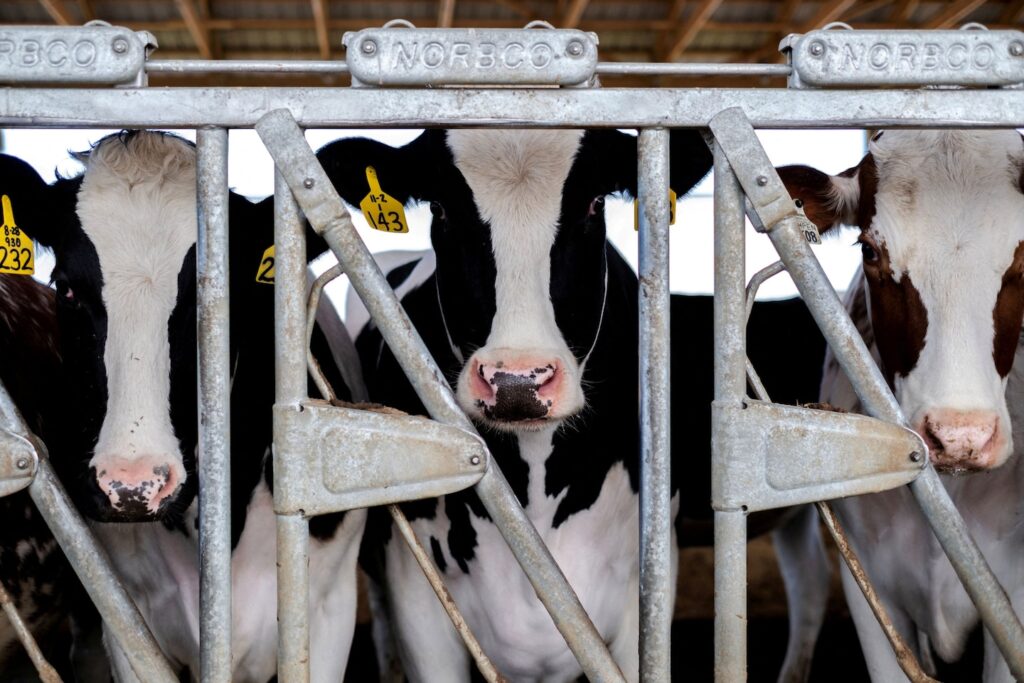The Food and Drug Administration said Tuesday that it tested milk samples throughout the dairy production process and found the presence of virus particles in “some samples,” without providing further details.
The presence of viral genetic fragments in milk is not unexpected. Jennifer Nuzzo, director of the Pandemic Center at Brown University School of Public Health, said pasteurization is generally effective in inactivating pathogens. Genetic material is generally not removed, Nuzzo said, but pathogens are usually no longer able to harm people.
But the bigger concern is that “more samples are showing infection, which means the infection is more widespread on dairy farms than we thought.” , said one public health official, who still spoke on condition of anonymity to share information. Published.
In a four-page statement, the FDA said some of the samples collected “demonstrated the presence” of the avian influenza virus, based on tests that detect virus particles but do not distinguish between active and dead virus particles. The finding of the virus “does not mean that the sample contains an intact infectious agent,” the agency's statement said.
Additional clinical tests are underway to grow the virus inside cells and in fertilized eggs, the latter being the “gold standard” for sensitively detecting active infectious virus, the FDA said. Stated. “Importantly, additional testing is required to determine whether the intact pathogen is still present and whether it remains infectious, thereby posing a risk of illness associated with ingesting the product. “A determination will be made as to whether this is the case,” the FDA statement said.
FDA officials said they expect results in the coming days or weeks.
“To date, we have not seen anything that would change our assessment that the commercial milk supply is safe,” the agency said in a statement.
Officials and experts do not have additional details about the number of milk samples that tested positive for avian influenza particles or the origin of the samples.
This strain of avian influenza has been circulating for more than 20 years, but its transmission to cattle is a major concern and has surprised even those who have been watching the virus for years. Since March 25, more than 20 herds in at least eight states have been infected with bird flu, prompting federal and state investigations.
For weeks, key federal agencies have expressed confidence in the safety of the commercial milk supply, including pasteurized products sold in grocery stores. FDA highlights data showing pasteurization inactivates other viruses, and says the egg pasteurization process (done at temperatures lower than those used for milk) inactivates highly pathogenic avian influenza. He pointed to research that shows that.
The International Dairy Products Association, which represents Japan's dairy manufacturing and marketing industry, said the virus fragments are “simply evidence that the virus has died.”
“Milk and dairy products produced and processed in the United States are some of the safest in the world,” spokesman Matt Herrick said in an email. “It just shows that we are protecting the commercial milk supply.” ”
In recent weeks, several experts have expressed confidence that the pasteurization process does not threaten the security of the country's milk supply; The federal government still needs to conduct tests to confirm that is the case.
Richard J. Webby, a virologist at St. Jude Children's Research Hospital, said influenza is “a fairly fragile virus,” meaning it is “quite easily inactivated.” “But that's something that needs to be tested.”
In recent weeks, a case of bird flu has been reported in a farm worker in Texas, making it the second human case of bird flu in the United States.
So far, the virus has not acquired the ability to spread efficiently among people.
However, because the virus can jump from animal to animal, it is increasingly likely to mutate and cause sustained human-to-human transmission, which could lead to a pandemic.
State health officials tested 23 people with flu-like symptoms; A Texas dairy worker has tested positive during the current outbreak. Centers for Disease Control officials say continued monitoring of emergency department visits and influenza testing in areas where avian influenza has been detected indicates flu-like illness and the only symptoms experienced by dairy workers. No unusual trend in eye inflammation noted The Ministry of Prevention says the risk of bird flu to the general public remains low.
Health officials say the lack of an increase in human infections is a good sign.
The key to containing the spread of infection lies in livestock herds. Testing of cattle is voluntary. USDA protocols limit testing to cattle with specific symptoms and limit the number of tests per farm.


